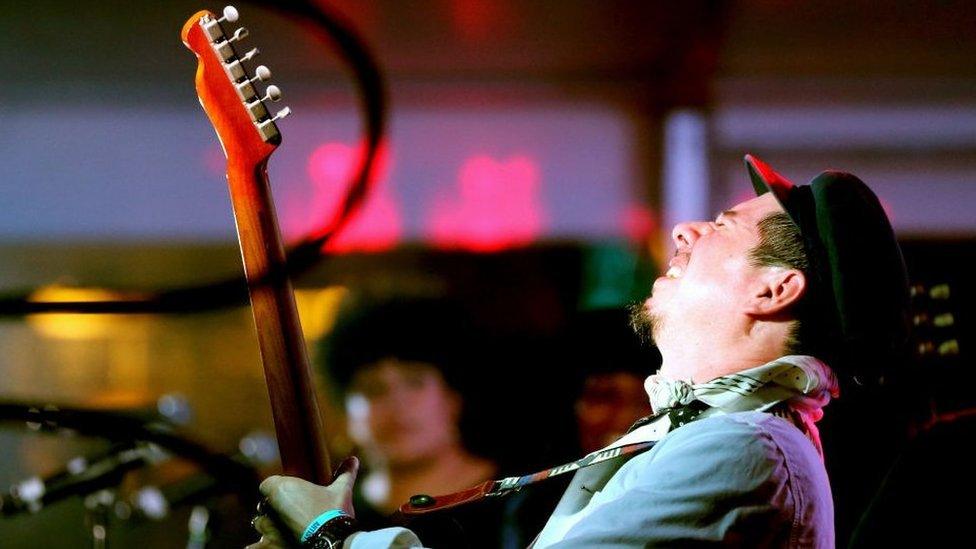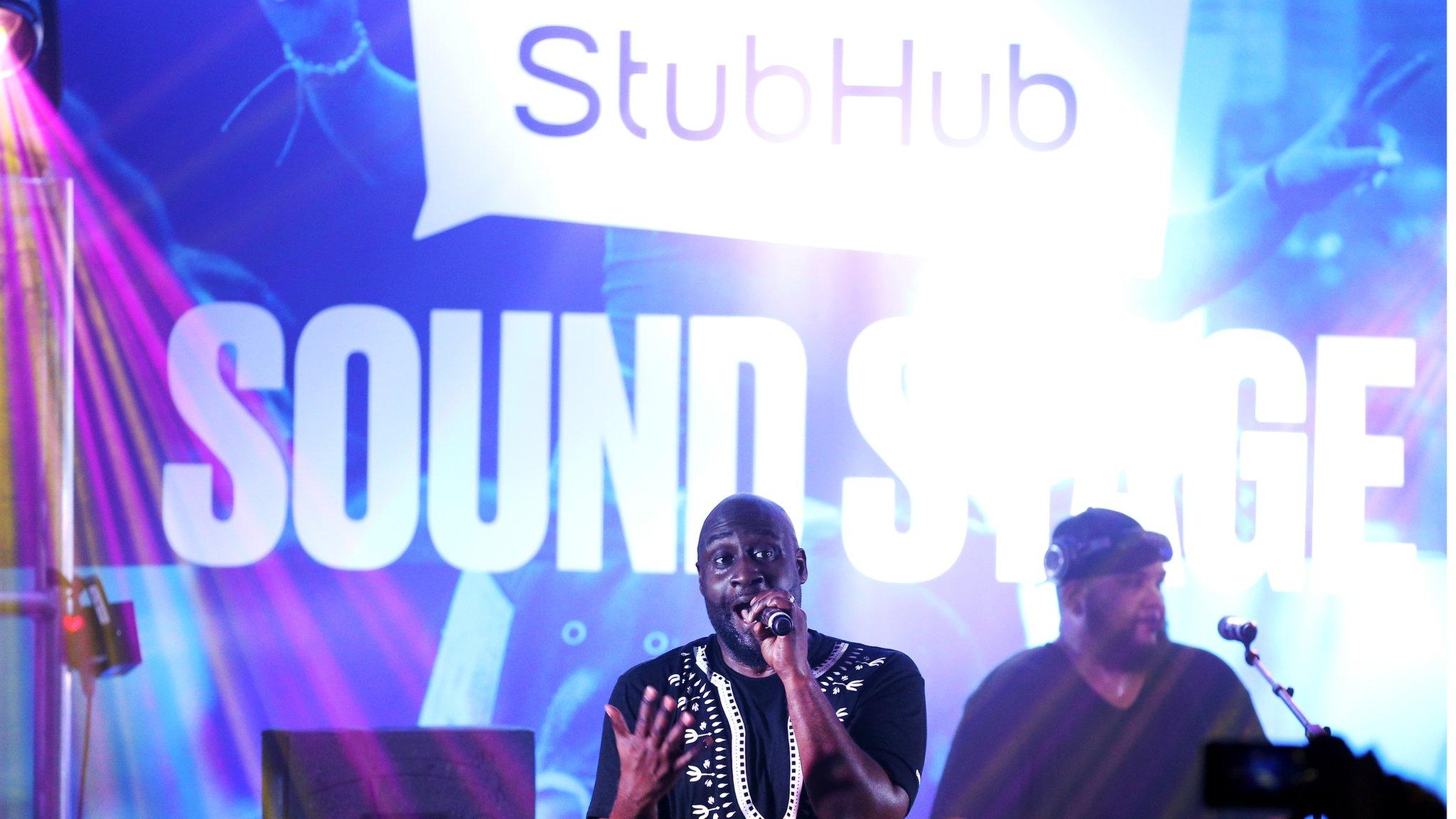New powers sought to stop illegal ticket resales
- Published
- comments

The UK's competition watchdog has said ticket resale firms such as Viagogo and StubHub should face tighter rules.
The Competition and Markets Authority (CMA) said current laws meant it was not possible to act swiftly and effectively against touts.
Another problem came from resellers who speculatively sold tickets they did not own, the regulator said.
The CMA has previously taken action against both Viagogo and StubHub, which have made changes as a result.
In February, a year after Viagogo bought StubHub for $4.1bn (£3.1bn), the regulator told Viagogo to sell all of StubHub's business outside North America to satisfy competition concerns.
The CMA's latest intervention comes as big music and sporting events are set to resume in the UK in the next few months after the Covid pandemic, fuelling fans' demand for tickets.
The watchdog's recommendations include:
a ban on platforms allowing resellers to sell more tickets for an event than they can legally buy from the primary market
ensuring platforms are fully responsible for incorrect information about tickets that are listed for sale on their websites
a new licensing system for secondary ticket sites that would enable an authority to act quickly to take down websites, withdraw a business's right to operate in the sector and impose substantial fines.
While bulk-buying of tickets by professional resellers - who then sell them at inflated prices - may be illegal, swift and effective action by authorities is not possible under the current law, the regulator said.


Viagogo and Stubbhub are the two biggest platforms that allow someone with a ticket to sell it on for whatever price they like to someone who needs it - and it's a massive businesses.
Latest estimates show that the value of the tickets sold in 2019 through secondary ticketing platforms was about £350m.
But it's always been a controversial area. Professional re-sellers grab tickets for live events to sell them on at inflated prices, which pushes the costs up for everyone. The 200 largest resellers account for around 50% of the ticket sales being sold on these sites.
The regulator began investigating nine years ago and has forced a number of changes to the way main sites operate, but now they want more power. They think it's impossible to chase individual re-sellers for breaking the law so they want the secondary ticket platforms to be legally responsible for the behaviour of the sellers trading on their sites.
If more tickets are being sold than one seller could legally buy from a venue, or are on sale before they could possibly have got hold of them, the CMA wants to be able to fine, or potentially take down the entire sites of Viagogo or Stubbhubb.
That's a big change in how the market operates, and one which would provide a lot more protection to customers who are so keen to get back to live events after lockdown.

Similar issues arise in relation to laws which prevent resellers advertising tickets using incorrect information or speculatively selling tickets that they do not own, the CMA added.
Licensing regime
George Lusty, the CMA's senior director for consumer protection, said: "Over recent years, we have taken strong action to protect people buying tickets from resellers online, and the secondary ticket websites are now worlds apart from those we saw before the CMA took action.
"While it is clear that concerns about the sector remain, there are limits to what the CMA and other enforcers can do with their current powers.
"With live music and sporting events starting back up, we want the government to take action to strengthen the current laws and introduce a licensing regime for secondary ticketing platforms.
"If adopted, these proposals will help prevent people getting ripped off by unscrupulous resellers online and we stand ready to help the government to implement them."
Adam French, Which? consumer rights expert, said: "Which? has repeatedly exposed rogue secondary ticket operators reselling tickets at extortionate prices without providing clear information or warning about the risk that people could be turned away at the door.
"The government should implement these recommendations as soon as possible and push forward with plans to give the CMA much stronger powers to enforce consumer law."
A spokesperson for Viagogo said the CMA report offered "an interesting insight into the effectiveness of current regulation".

"The CMA notes their report is not as a result of customer complaints and moreover, that a ban on secondary platforms would lead to an explosion in black market sources for tickets," the spokesperson went on, adding that Viagogo had argued strongly for the UK to "grasp the opportunity of the Covid-19 recovery to improve the events industry".
"We are open to all ideas as to how that is achieved, but it must be carefully considered and focused on improving the industry's service for customers.
"There is a need to address the failings of the primary market and we need to explore the risks of new and unregulated online resale channels."
- Published2 February 2021

- Published29 January 2020

- Published13 December 2019
